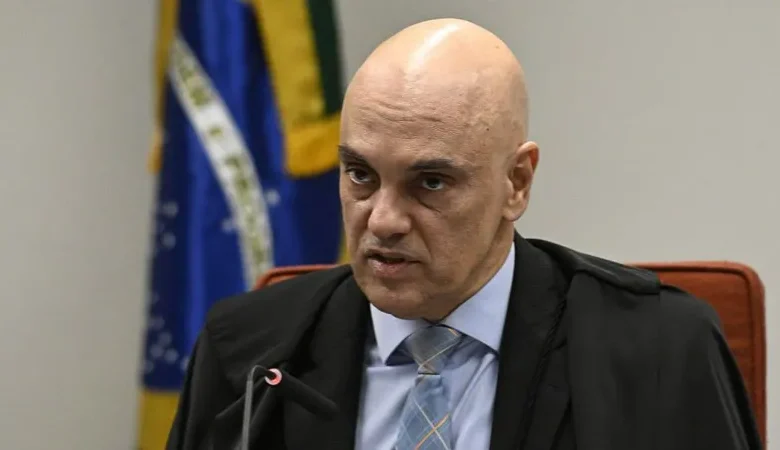A Renewed Shockwave in Global Trade
In a move that stunned markets and diplomatic circles alike, former U.S. President Donald Trump issued a sweeping 50% tariff on Brazilian steel and aluminum. The decision, announced during a campaign rally-style event, came with little forewarning and included sanctions targeting the Brazilian judiciary—specifically a judge involved in prosecuting former President Jair Bolsonaro. The measures sparked immediate backlash from both domestic businesses and international allies, signaling a renewed era of economic tension.
The imposition of tariffs reintroduces Trump’s long-held tactic of economic brinkmanship, often used as leverage in broader geopolitical disputes. Although Brazil has traditionally been seen as a strategic economic partner, the former president’s administration cited “unfair trading practices” and “currency manipulation” as the basis for the aggressive policy. However, critics argue that the decision is more deeply rooted in political motivations, particularly Trump’s overt alignment with Bolsonaro.
Pressure Tactics and Political Crossroads
Brazil’s response was swift but measured. Officials condemned the sanctions, accusing the Trump team of interfering with their domestic affairs under the pretense of trade enforcement. Many believe that Trump’s targeting of the judge overseeing Bolsonaro’s case is an unprecedented escalation, essentially framing it as a loyalty move rather than a principled foreign policy stance.
The judge in question, whose name was withheld from early press releases due to security concerns, has become a symbol of judicial independence in Brazil. Bolsonaro’s ongoing legal challenges stem from accusations of corruption and abuse of power, with trials drawing widespread media attention across Latin America. Trump’s sanctions against the judge are interpreted by analysts as a strong-arm attempt to discredit the judicial process and offer Bolsonaro political cover.
This intersection of economic retaliation and judicial interference has raised alarms in international law circles, with several European diplomats expressing concern over the message it sends to developing democracies. At stake is not just the future of trade between the U.S. and Brazil, but also the credibility of institutional checks and balances in global diplomacy.
Trade Repercussions and Business Fallout

The steel and aluminum tariffs, set to take effect within 30 days, are expected to severely disrupt the industrial supply chain in both countries. U.S. automakers, construction firms, and manufacturers rely heavily on Brazilian metals due to their affordability and quality. These sectors now face higher costs, potential job cuts, and delays in production timelines.
Brazil’s Ministry of Foreign Affairs has hinted at retaliatory measures but has stopped short of announcing any concrete action. Meanwhile, Brazilian steel producers have warned of potential shutdowns and mass layoffs if the tariffs remain in place. Economic analysts suggest that the ripple effects could also impact neighboring countries that depend on Brazil’s metal exports.
For Trump’s domestic supporters, the move is another example of “America First” in action. However, for global markets and policy experts, the strategy appears to be driven by personal allegiances rather than long-term economic reasoning.
The move has also drawn criticism for undermining the WTO framework, as it bypasses standard trade dispute procedures. Brazil has initiated contact with the World Trade Organization to formally challenge the tariffs, though such processes are often slow and politically complicated.
Bolsonaro’s Shadow on U.S. Foreign Policy
Trump and Bolsonaro have long maintained a public alliance, often echoing each other’s populist rhetoric and criticism of traditional institutions. As Bolsonaro’s legal troubles grow in Brazil, many view the recent sanctions as Trump’s gesture of solidarity—a deliberate attempt to protect a political ally by undermining the legal forces pursuing him.
The specific targeting of a judge involved in Bolsonaro’s case adds another layer to this narrative. Human rights organizations, both in the U.S. and abroad, have condemned the move as an attack on judicial independence. Legal scholars are also raising concerns about precedent: if a powerful country like the U.S. begins sanctioning individual judges in foreign nations, it may embolden authoritarian regimes to do the same.
Despite international outcry, the Trump campaign has doubled down on its decision. In a recent media appearance, a senior advisor defended the sanctions, claiming the judge had “compromised democratic values” and was “part of a deep state campaign against a democratically elected leader.” Such claims echo past narratives used by Trump to discredit opponents both at home and abroad.
Economic Nationalism vs. Global Diplomacy
The fallout from the 50% tariffs is likely to reverberate beyond Brazil. Other nations now face a renewed concern that their own domestic legal actions could provoke economic retaliation from the U.S. under Trump-style leadership. This approach contrasts sharply with multilateral diplomacy and cooperation that had defined previous U.S. administrations.
Meanwhile, global institutions are once again being tested.
The World Bank, IMF, and G7 leaders have reportedly started backchannel talks. They aim to assess the wider impact of Trump’s latest move. Some leaders worry it might set a precedent. Future foreign policy could follow this model, where personal alliances outweigh national interests.
As the crisis deepens, one phrase is gaining traction in trade circles: “sanction strategy.” Traditional sanctions typically target military aggression or human rights abuses. This case, however, blurs the line between personal political motives and official state policy.
The Road Ahead
Brazil now finds itself in a challenging position: retaliate and risk further economic damage, or cooperate and risk legitimizing foreign interference in its judiciary. Trump’s base may see the move as a win, but broader U.S.-Latin America relations are likely to suffer long-term damage.
Trade unions, industry leaders, and political opposition figures in both countries have urged for de-escalation.
If Trump regains power in the coming election cycle, he may use this incident as a model for future disputes. His administration might abandon multilateral diplomacy. Instead, it could apply tariffs, use direct pressure, and shape foreign policy around personal alliances. This approach would mark a shift away from institutional processes, emphasizing individual leverage over traditional negotiation channels.






